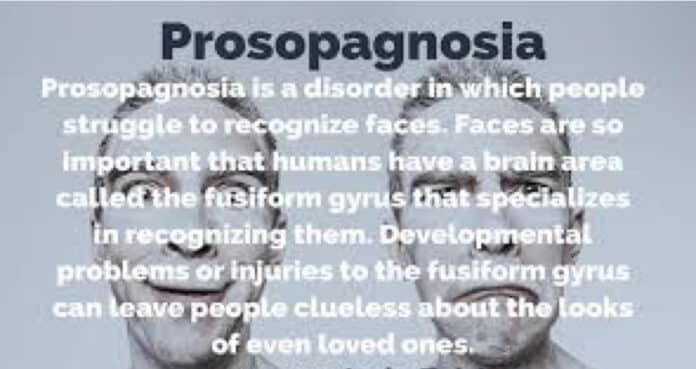People with developmental prosopagnosia, who experience lifelong difficulties recognising the faces of people who should be familiar to them, can still successfully identify some faces ‘spontaneously’ if they have sufficient and recent exposure to them, a new study has found.
Researchers from Bournemouth University also attempted to separate successful face recognitions that were ‘spontaneous’ from those that were ‘compensated’ in nature – requiring the extra effort of looking for additional features, such as a distinctive hairstyle or gait.
The findings, published in the scientific journal PeerJ, could help people with the condition understand why they sometimes recognise people ‘spontaneously’ and how they might increase their potential to recognise known others, without the extra legwork they are accustomed to applying.
“We have turned the usual research question about developmental prosopagnosia on its head,” explained Dr Emma Portch, Senior Lecturer in Psychology at Bournemouth University, who led the study. “Most research has investigated why and how often these people fail to recognise familiar faces, whereas this time we wanted to look at why they are sometimes getting it right,” she added.
For the first part of this study, the research team spoke to twenty-three people with developmental prosopagnosia to ask about their experiences.
“This may seem the common-sense approach, but it has been overlooked in many previous studies,” explained Dr Portch.
The participants were asked whether they are sometimes able to spontaneously identify someone who should be familiar to them, without the effort of applying compensatory mechanisms, how often they are able to do so, and why they think they are able to recognise those people.
“Almost everyone in the study told us they are able to spontaneously recognise someone on at least some occasions,” explained Dr Portch. “They also said that these spontaneous recognitions are often driven by whether they have a lot of exposure to that person, have seen them recently, or have an emotional connection to them,” she added.
In the second study the participants were shown famous faces on a computer screen and asked which ones they could identify. If they thought they could recognise and name the person, they were asked whether they felt their recognition experience had been ‘spontaneous’ or whether they had to apply compensatory mechanisms – either by focusing on distinctive characteristics or recognising the photo itself as opposed to the person in it.
About three quarters of successful identifications of famous faces were through compensatory measures, as opposed to one quarter which had been identified spontaneously.
In this study, the participants said that the factors which helped them spontaneously identify the famous people were the same as those they had mentioned in the first study as helping them in everyday life. For example, frequent and recent exposure to their image, and considering the face to be distinctive on the whole.
“It seems that regular exposure to a person is helping in two ways,” Dr Portch said. “Not only does it improve their chances of spontaneously recognising someone, but it is also important for them to work out which features or characteristics might help to support more effortful, compensated recognition,” she continued.
The research team advise that the findings could help people with developmental prosopagnosia understand more about their condition and will also have implications for how it is diagnosed.
Dr Portch said, “We show that spontaneous recognition is possible for most people with developmental prosopagnosia, on at least some occasions. This supports previous conceptualisations of the condition as residing on a continuum of severity. They can use this as a vehicle to be able to recognise those who are important in their lives and they know that regular and recent exposure to those people is crucial, otherwise the ability might decay.”
Other research has suggested that the screening measures used to diagnose the condition are missing some ‘milder’ cases. Some people report profound difficulties in everyday face recognition but because they don’t meet testing thresholds, they are denied a diagnosis that might help them to make sense of their difficulties.
“In line with other findings, our work suggests that you need to carefully consider the screening tests you are using to make sure they give a clear measure of preserved spontaneous and compensated recognition and, when a person fails to meet a particular testing threshold, more weight might be given to their reported subjective experience,” Dr Portch concluded.
The study “Why can people with developmental prosopagnosia recognise some familiar faces? Insights from subjective experience” has been published in PeerJ with DOI https://doi.org/10.7717/peerj.15497
Bournemouth University
Join us in helping to bring reality and decency back by SUBSCRIBING to our Youtube channel: https://www.youtube.com/channel/UCQ1Ll1ylCg8U19AhNl-NoTg and SUPPORTING US where you can: Award Winning Independent Citizen Media Needs Your Help. PLEASE SUPPORT US FOR JUST £2 A MONTH https://dorseteye.com/donate/







